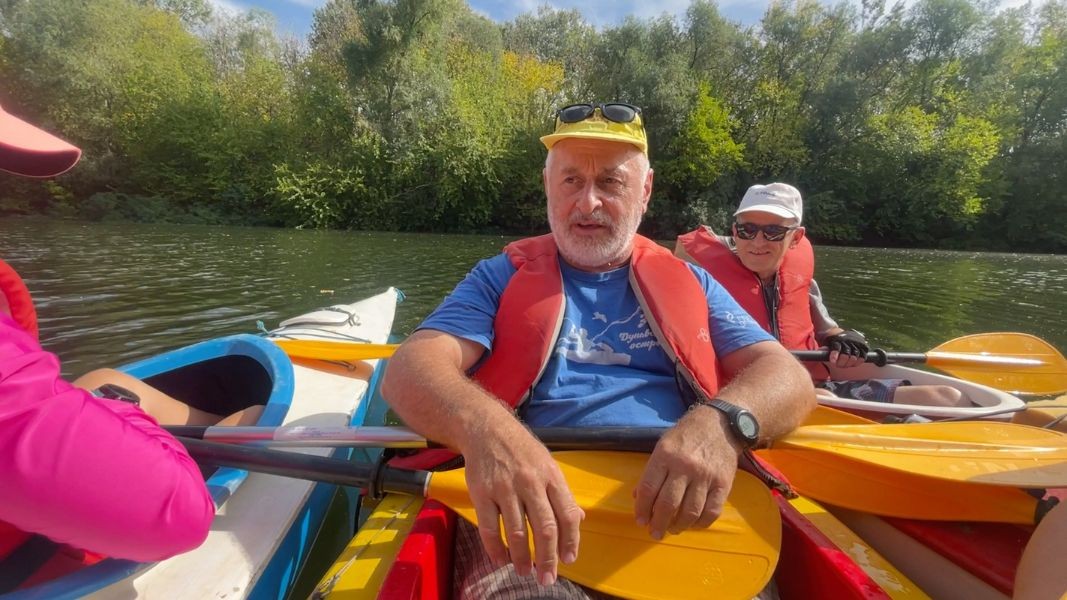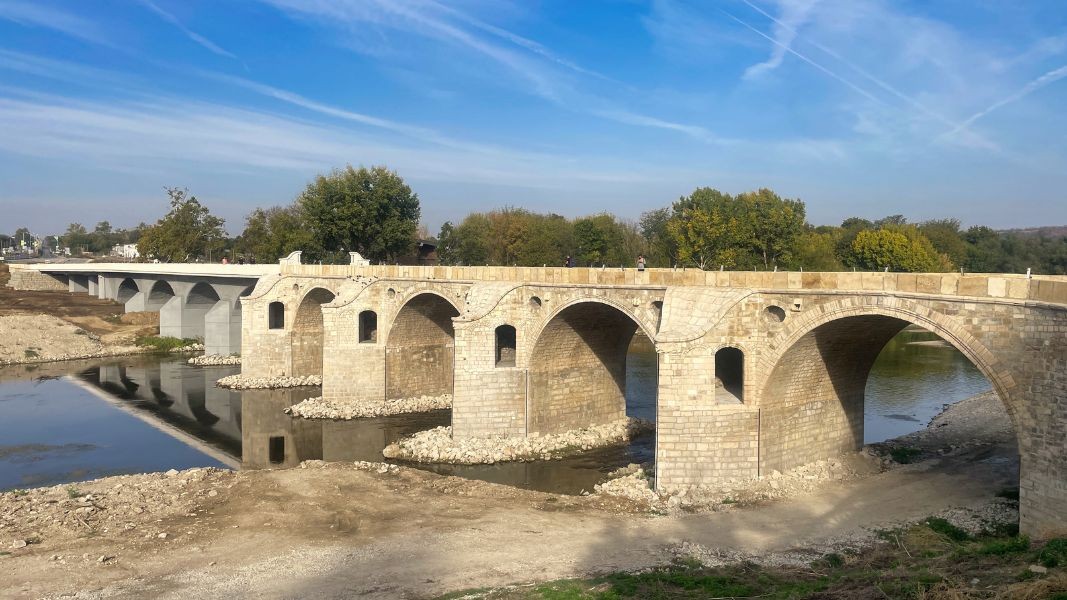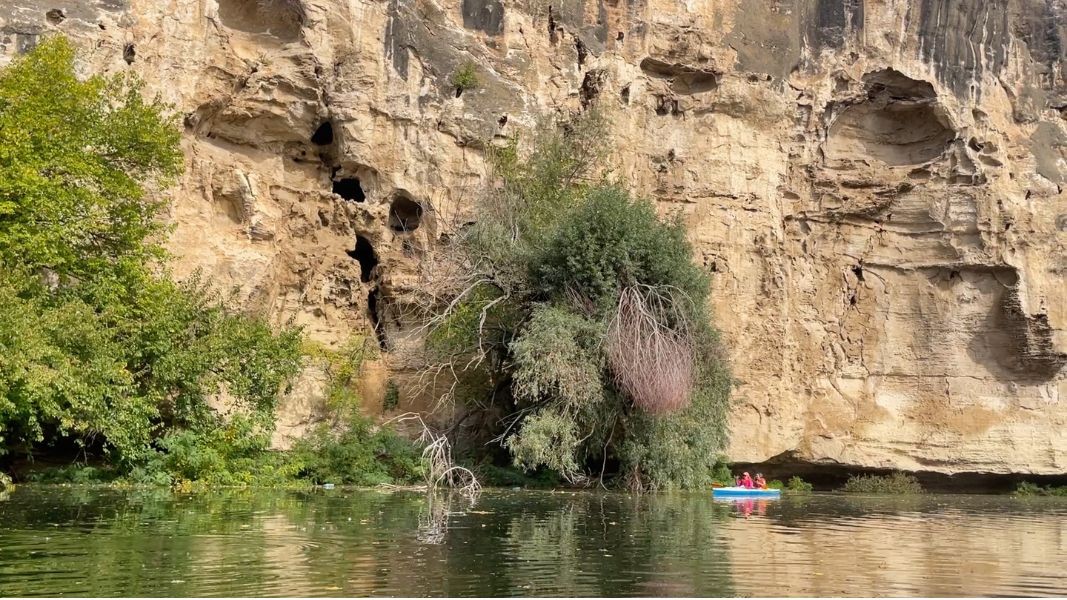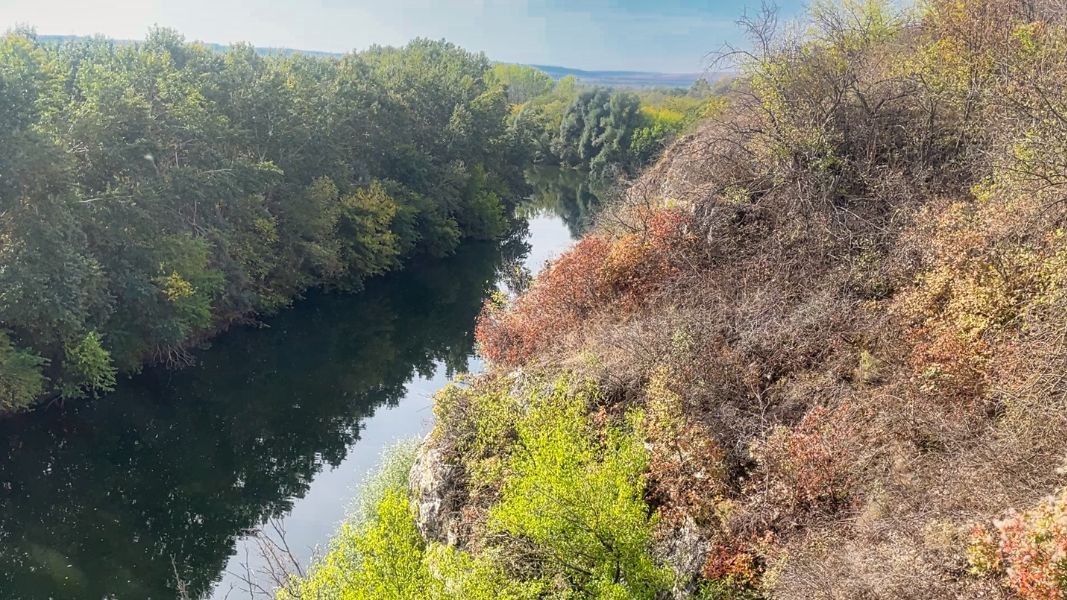The Yantra River rises in the Balkan Mountains at 1,220 metres above sea level and descends northwards, meandering through picturesque valleys and gorges in central northern Bulgaria, crossing the towns of Gabrovo and Veliko Tarnovo. Shortly before it flows into the Danube, in the area of the villages of Belyanovo and Novgrad, like a talented sculptor, the river moulds before our stunned eyes meanders and a deep canyon lined with caves and inaccessible crevices.

"We give short instructions and people get in the boats and go. The river is good, cozy. It envelops people with its atmosphere and they feel part of the landscape, of all this abundance... There are trees on both sides and you're like in a green tunnel. You find yourself into an isolated world with many birds and animals and you sink inside nature. There may be settlements around, roads, but they remain out of sight, out of our hearing. And we move only along this green street called Yantra."

"Interestingly, in this part of the Yantra River there are high cliffs on one bank, reaching up to 40-50 m. And this rock wall is "embedded" directly into the water below", says Sasho Popov. "These rocks are limestone, they have been eroded by the water. They have an interesting structure with caves, with niches... And in some of them hermit monks in the Middle Ages carved rock cells. There were rock churches, rock monasteries. They are difficult to access, you need mountaineering equipment to penetrate them. But near the village of Belyanovo you can see a rock church from the 12th century, which has been improved for tourism purposes."

"And it becomes a combination - we have sport and tourism activity related to rowing. We have beautiful landscapes like in the paintings of the impressionists, of Claude Monet. We have history - the monastic cloisters in the cliffs. We have ornithology, because this green curtain on both sides of the river attracts many waterfowl - grey heron, cormorants, mallards. I've also seen storks, osprey, etc. There are legends of huge fish living in the underwater cavities here. Right where the rock reaches the water there are underwater niches where huge catfish used to hide and fishermen, when they catch a catfish, tell stories for years," says Sasho Popov in conclusion.

Explore more parts of Bulgaria with the same author:
English publication: Rositsa Petkova
A self-taught woodcarver embarks on the path of his dreams. Year after year he recreates the images that fill his imagination, racing against the fastest adversary - time. But one day, as he sits down to contemplate his creation, his mortality betrays him...
The most enthusiastic skiers can now ski down the snowy slopes of Rila Mountain after dark. The Malyovitsa resort complex is opening night skiing, reports BTA. Skiers and snowboarders can try the slopes every Saturday night from 18:00 to 21:00. The..
Pristine nature, homely comfort, delicious meals and snowy emotions - Momchilovtsi is a paradise for lovers of rural tourism. In the height of the tourist season, the guest houses and restaurants in the Rhodope village are working at..
The most enthusiastic skiers can now ski down the snowy slopes of Rila Mountain after dark. The Malyovitsa resort complex is opening night skiing,..
A self-taught woodcarver embarks on the path of his dreams. Year after year he recreates the images that fill his imagination, racing against the fastest..

+359 2 9336 661
